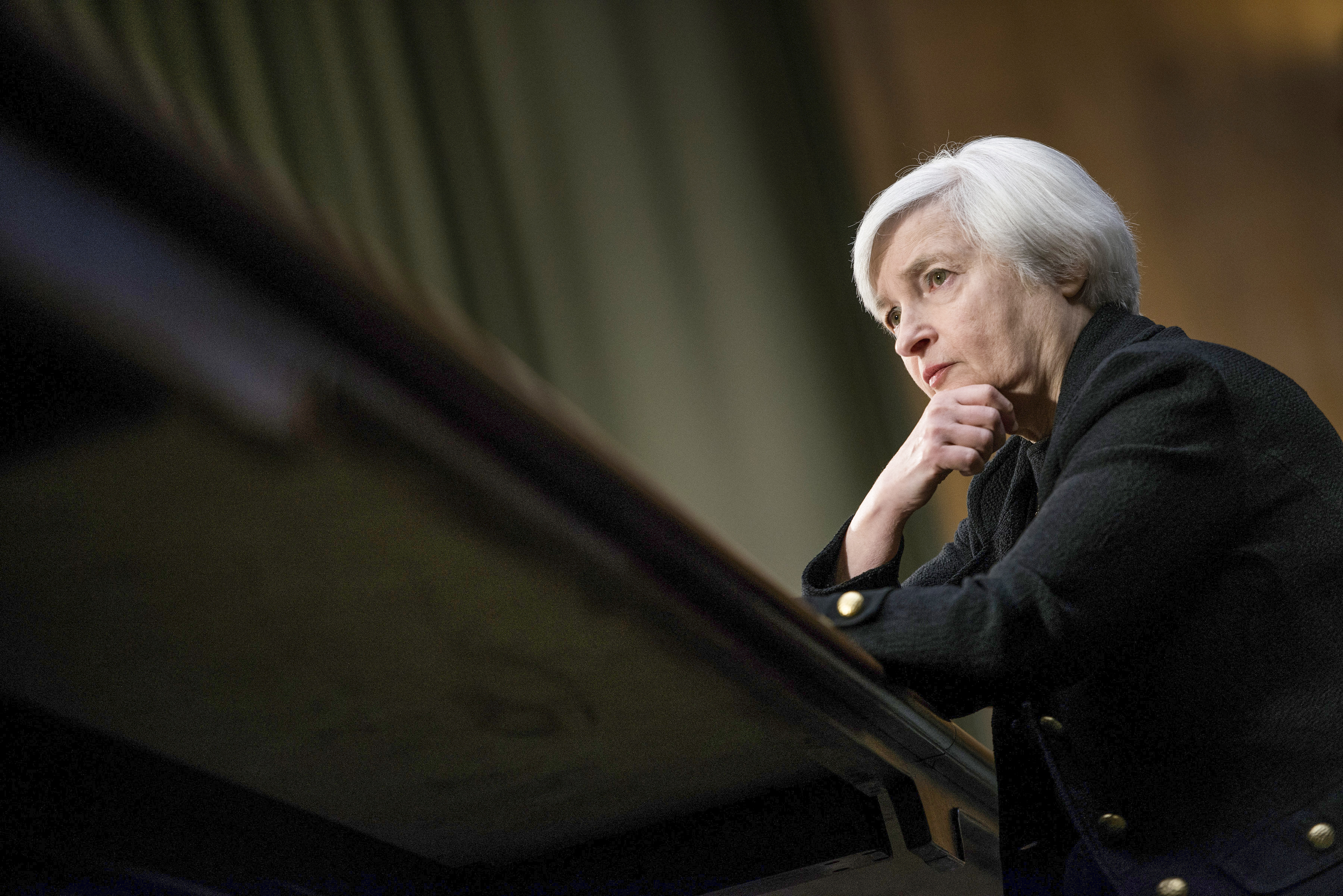The Fed guessing game
All eyes are now on Federal Reserve chairwoman Janet Yellen

A free daily email with the biggest news stories of the day – and the best features from TheWeek.com
You are now subscribed
Your newsletter sign-up was successful
The smartest insight and analysis, from all perspectives, rounded up from around the web:
All eyes are now on Federal Reserve chairwoman Janet Yellen, said Binyamin Appelbaum at The New York Times. Since December 2008, the central bank has held short-term interest rates near 0 percent, an unprecedented stretch meant to pull the U.S. economy from the depths of the Great Recession. But the end of this cheap-money era appears to be near. With the economy steadily improving, the Fed plans to raise its benchmark interest rate by 0.25 percent, perhaps as soon as its mid-September meeting. It's "a mathematically minor move that has become a very big deal." Liberals want to keep rates low to boost growth and fight economic inequality; conservatives say it's long past time to rip off the Band-Aid of federal stimulus. Everyone's worried about how the skittish global markets will react.
"Raising rates would declare that we're back to normal," said Katrina vanden Heuvel at The Washington Post. There's only one problem: "Most Americans aren't." The percentage of working-age Americans with jobs hasn't returned to its pre-recession level. Wages are stagnant, underemployment is widespread, and median household wealth continues to decline. Meanwhile, Europe is troubled and China is a mess. What exactly is the rush? There's only one good reason to raise interest rates and that's to fight inflation, said Matthew Yglesias at Vox. But the U.S. "does not currently have an inflation problem." Inflation is well below the Fed's 2 percent target and seems likely to stay that way. How much the economy can grow before inflation does become a problem is up for debate, but there's little risk — and "considerable benefit" — to keeping rates low in the meantime.
The Week
Escape your echo chamber. Get the facts behind the news, plus analysis from multiple perspectives.

Sign up for The Week's Free Newsletters
From our morning news briefing to a weekly Good News Newsletter, get the best of The Week delivered directly to your inbox.
From our morning news briefing to a weekly Good News Newsletter, get the best of The Week delivered directly to your inbox.
These are all "weak reasons" that overlook a central fact, said Barry Ritholtz at Bloomberg View. "Interest rates at zero are a post-credit-crisis emergency setting, and the emergency is over." The economy posted surprisingly strong 3.7 percent growth last quarter. And the truth is, "banks can handle the increase." The Fed also needs to stop delaying sound fiscal policy every time Wall Street throws a tantrum, said William Cohan at The New York Times. Whenever the central bank signals that it plans to raise rates, markets swoon, as traders "ponder the fact that the morphine drip of free money might be pulled out of their arms." A version of this "tragicomedy" is now playing out in the markets, and Wall Street is begging for another postponement of the inevitable. But it's time to "end the easy-money addiction" once and for all.
Given the "extraordinarily gradual approach" Fed leaders have promised to take to hiking rates, "it's a wonder they have not raised rates already," said Chris Low at BBC. After all, the unemployment rate, perhaps the most important factor in their decision, was 5.3 percent in July, very close to the 5 to 5.25 percent range considered to be full employment. Ultimately, "it is worth remembering the Fed has history on its side": Financial markets almost always panic after a first rate increase, but calm down when investors see the economy can handle it. "There is no reason it should be different this time."
A free daily email with the biggest news stories of the day – and the best features from TheWeek.com
-
 Health insurance: Premiums soar as ACA subsidies end
Health insurance: Premiums soar as ACA subsidies endFeature 1.4 million people have dropped coverage
-
 Anthropic: AI triggers the ‘SaaSpocalypse’
Anthropic: AI triggers the ‘SaaSpocalypse’Feature A grim reaper for software services?
-
 NIH director Bhattacharya tapped as acting CDC head
NIH director Bhattacharya tapped as acting CDC headSpeed Read Jay Bhattacharya, a critic of the CDC’s Covid-19 response, will now lead the Centers for Disease Control and Prevention
-
 The pros and cons of noncompete agreements
The pros and cons of noncompete agreementsThe Explainer The FTC wants to ban companies from binding their employees with noncompete agreements. Who would this benefit, and who would it hurt?
-
 What experts are saying about the economy's surprise contraction
What experts are saying about the economy's surprise contractionThe Explainer The sharpest opinions on the debate from around the web
-
 The death of cities was greatly exaggerated
The death of cities was greatly exaggeratedThe Explainer Why the pandemic predictions about urban flight were wrong
-
 The housing crisis is here
The housing crisis is hereThe Explainer As the pandemic takes its toll, renters face eviction even as buyers are bidding higher
-
 How to be an ally to marginalized coworkers
How to be an ally to marginalized coworkersThe Explainer Show up for your colleagues by showing that you see them and their struggles
-
 What the stock market knows
What the stock market knowsThe Explainer Publicly traded companies are going to wallop small businesses
-
 Can the government save small businesses?
Can the government save small businesses?The Explainer Many are fighting for a fair share of the coronavirus rescue package
-
 How the oil crash could turn into a much bigger economic shock
How the oil crash could turn into a much bigger economic shockThe Explainer This could be a huge problem for the entire economy